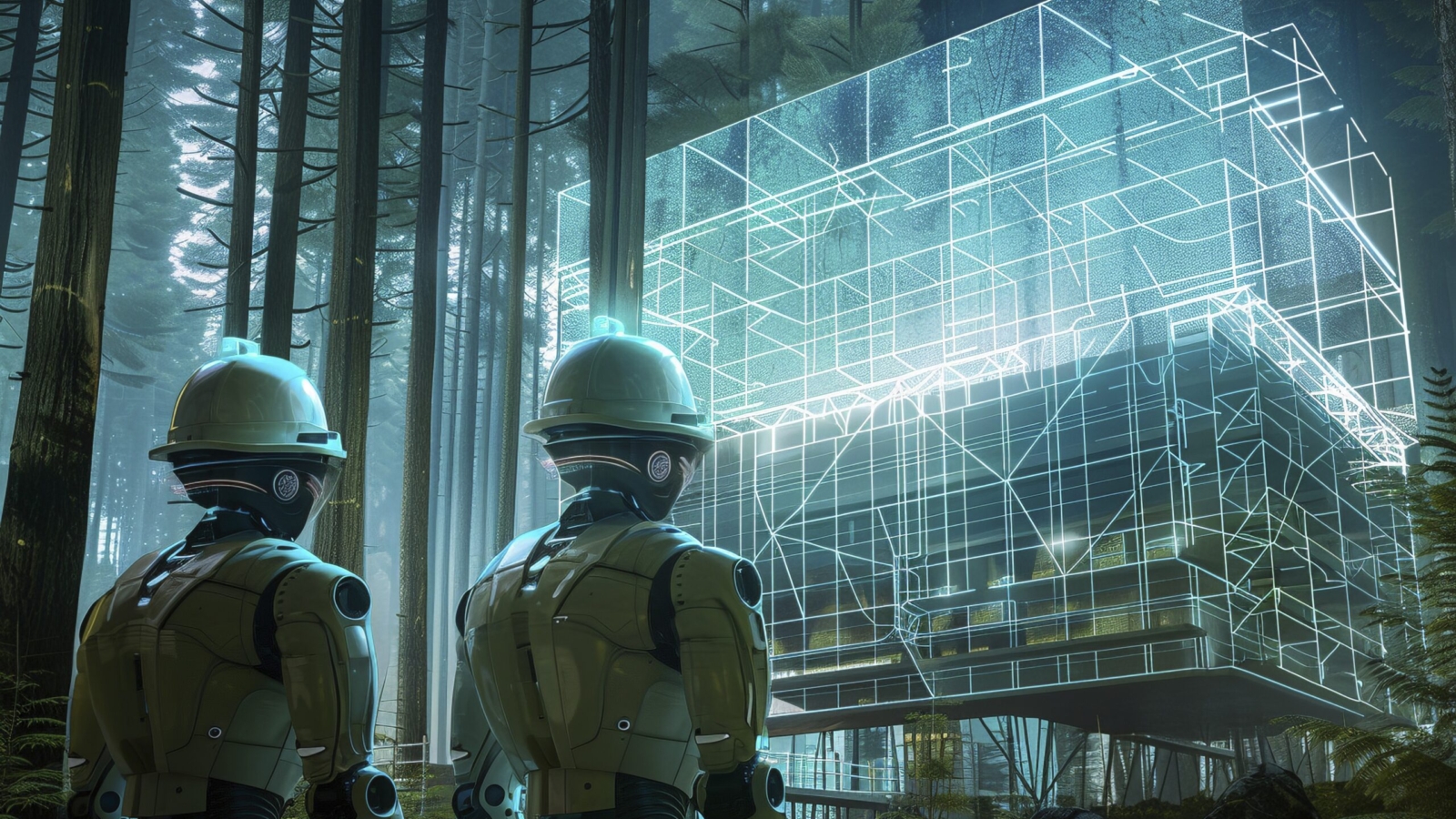I in Construction
Construction has been a laggard with respect to AI, so when the construction industry began to ratchet up its adoption, at last, this figure made some sense. Through 2024, AI in construction project management gains increasing prevalence providing solutions to support efficiency in flows and leverage of resources. This post will deal with how construction project management can incorporate features and services of artificial intelligence and acquire outcomes and advancements in cost savings.
Understanding the Role of AI in Construction Project Management
Artificial Intelligence includes different types of technologies like centralized machine learning, data analytics, automation which can be used on different phases of construction project management. AI with respect to AI has the possibilities where a construction manager can make the planning smarter, real-time monitoring more efficient and marginalize its resource optimization process which will help in cost-reductions to a great extent thereby becoming more effective.
1. A Better Project Planning And Scheduling
Predictive Analytics
Help from AI to do construction project management possibly gives one of the most beneficial outcomes which is its predictive powers. Predictive analytics takes historical data into account to help estimate your project timelines, understand when and where you might go over budget, or predict when a delay might occur. Using the data from previous type of projects it can access the risk areas and advice what may need to be done and helps mangers put things in place before making their deciosn.
Automated Scheduling
By meeting project requirements with human or machine resources and timelines, AI-powered tools can automate scheduling as well. They provide features for creating a project timeline, managing critical paths and returning schedules on the fly when conditions change. This saves time that you would have spent manually scheduling and, thereby, helps ensure that projects remain on schedule.
2. Optimized Resource Allocation
Smart Resource Management
AI can optimize labor, material and equipment allocation through the analysis of project requirements vs resource availability. Algorithms will also be predicting the best use of resources in your environment, thus reducing waste and lowering your bills. AI, for its part, may be able to foresee when certain materials will be needed onsite and only facilitate their delivery then-streamlining the supply chain while reducing storage costs.
Workforce Productivity
Using AI to track KPIs The standard key performance indicators or KPI, of course, include task completion rates and worker efficiency. With this data AI can determine where productivity can be increased, where training opportunities lie and also reflect on scheduling shifts so that the right workers are plugged into the right tasks at the right time.
3. Enhancing Real-time Monitoring and Decision Making
Drones and IoT Devices
AI-powered drones and Internet of Things (IoT) devices may also generate real-time data from construction sites. Aerospace imagery Drones can provide aerial photographs and videos, enabling project managers to manage delivery, identify security liability problems and site conditions. With the connection from IoT devices, your equipment usage, environmental circumstances as well as worker mobility can be monitored, which is beneficial for decision-makers.
Real-Time Analytics
With AI-powered analytics platforms, managers can monitor data from multiple sources in real-time and provide actionable insights. Tools such as these can expose concerns with equipment or even unrelated health and safety by showing what the governing authority is signaling – prompting immediate management action. This would have you in making intelligent calls which prevent downtime and add expensive blunders, since real time analytics gives an idea of what’s happening right here, right now.
4. Improving Quality Control and Safety
AI-Driven Quality Inspections
Quality control AI can be useful in eliminating human bias by automating the inspection processes, and identifying construction defects. Machine learning algorithms will check architectural norms by visual and measurement analysis of images or data from sensors It minimizes the need for human judgements hence enhances the correctness of the project.
Predictive Safety Management
Construction work brings with it the potential for a variety of safety hazards, but AI can be utilized to prevent many accidents and promote worker safety. The AI-driven predictive safety management systems study the data from past incidents and then find the similar patterns that indicate a warning to be triggered. They can suggest ways of improving the safety and prevent accidents before they even happen.
5. How AI Integration can Cut down Costs?
Minimizing Rework
Rework due to errors: This is one of the major cost drivers for construction. The apparent fewest benefit of this is rework reduction through a better accuracy in project planning, resource allocation and quality control (work phases that do not actually add any new business value). When it comes to errors, AI works by recognizing problems early and giving prompt insights in order to prevent the inception of expensive issues.
Efficient Procurement
AI can Predict the Required Materials, Select Ideal Suppliers, and Bargain for Better Costs in Procurement Processes Reduces the delays and the consequent cost of storing materials etc by making certain that correct raw materials are available precisely when they are needed which eventually could translate to overall saving in costs.
Conclusion
Thanks to its capacity of automating workflows and validating decisions more consistently, AI is revolutionizing construction project management by lowering costs. More benefits are held in the application of AI technologies for project management, work efficiency, resource operation and project outcomes. Many construction companies achieved significant success in their projects by deploying AI-powered features such as project planning, real-time monitoring, resource optimization, and quality control.
Featured Image: For a construction project manager practical necessity, embracing ai is no longer a futuristic concept but a and for those whose aspiring to lead in the construction industry. AI will keep on shaping the construction industry in all its aspects and will drive innovation and excellence as we move through the times.


Add a Comment